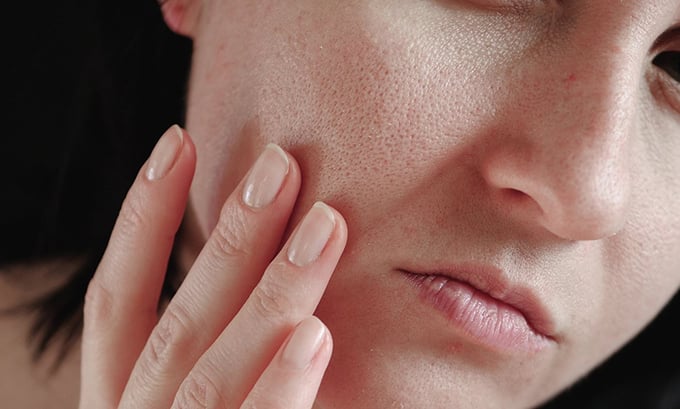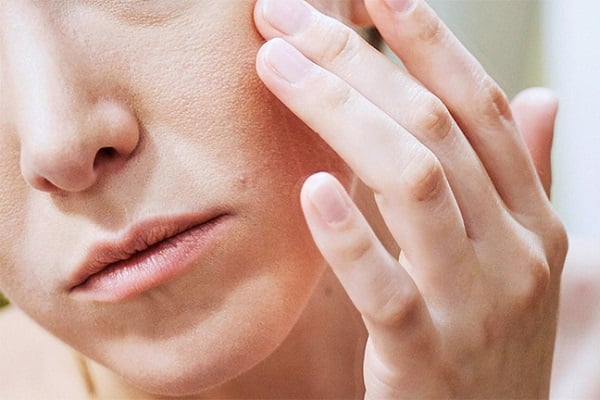Causes of Dry, Chapped Skin in Cold Weather
During winter, as temperatures drop, the air becomes dry and lacks humidity, leading to increased water loss from the skin. Being in a heated environment exacerbates this dehydration. As a result, the skin is prone to dryness and chapping, especially in sensitive areas such as the face, lips, and hands.
On top of that, people tend to drink less water and only hydrate when they feel thirsty, further reducing the amount of water supplied to the body and skin.

People often drink less water during winter, only hydrating when they feel thirsty.
Symptoms of Dry, Chapped Skin
Dry skin can cause itchiness, irritation, and even chapping, especially when exposed to water. The skin may also become rough, wrinkled, and flaky, with visible dead skin cells.
In severe cases, the skin can become damaged and bleed, providing an entry point for bacteria.
How to Care for Dry, Chapped Skin in Cold Weather
Use Natural Masks: Natural masks made from ingredients like cucumbers, tomatoes, and loofah have a soothing and moisturizing effect. Clean and slice these ingredients thinly, then apply them to your face before bedtime to improve dryness and chapping.
Proper Skin Cleansing: Gently wash your face 2-3 times a day with warm water. Avoid hot water, as it can dehydrate your skin further. Also, limit the use of strong soaps or cleansers that can strip the skin of its natural oils.
Moisturize: Apply Vaseline or moisturizer to dry and chapped areas of the skin.

Apply Vaseline or moisturizer to dry and chapped areas.
Choose Suitable Skincare Products: When selecting a moisturizer or ointment, test it on the palm of your hand first to check for any skin reactions. Avoid using steroid-containing medications unless prescribed by a doctor, as they may cause unwanted side effects.
Protect Your Skin Outdoors: When going out in the cold, wear a mask or scarf to shield your skin from the harsh wind and sun.
Stay Hydrated: To compensate for water loss, aim to drink 1.5-2 liters of water daily, even if you don’t feel thirsty. Maintaining proper hydration is crucial for keeping your skin moisturized.
Healthy Diet: Consume a diet rich in vitamins and minerals from fresh fruits and vegetables like oranges, lemons, grapefruit, bananas, and cucumbers to nourish your skin from within. These foods provide vitamin C and antioxidants, boosting your skin’s resilience.
The 6 Main Culprits Behind Your Skin’s Woes
Acne is a common skin condition that affects many people, especially adolescents and those with sensitive skin. It can be a source of great distress, impacting self-esteem and confidence. The journey to achieving clear skin can often be challenging and overwhelming, with countless treatments and remedies available, leaving those affected confused and unsure of where to start.


































